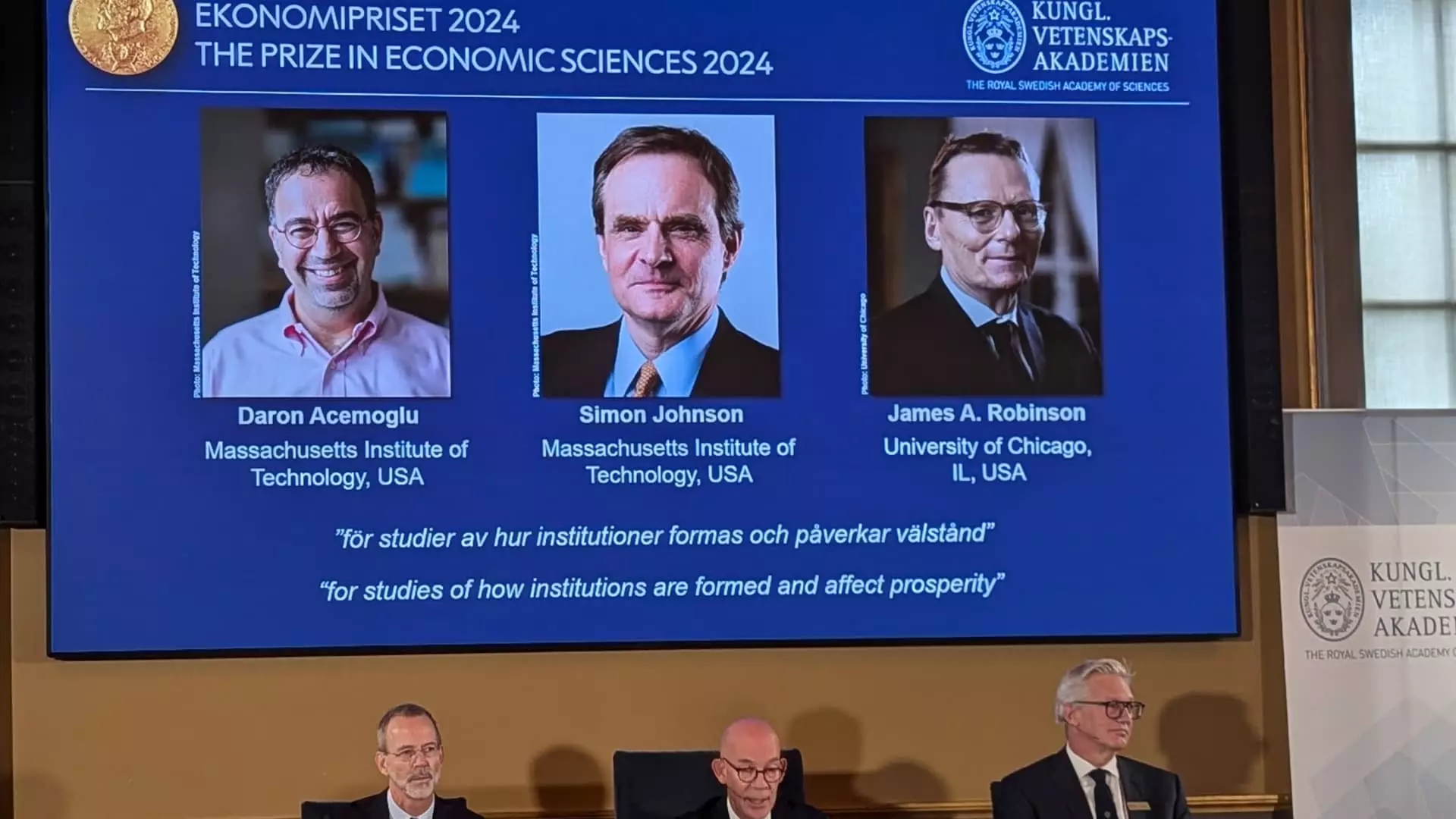On Monday, a significant milestone was achieved in the realm of economic sciences when esteemed economists Daron Acemoglu, Simon Johnson, and James Robinson were awarded the Nobel Prize. Their groundbreaking research has illuminated the perplexing nature of wealth inequality among nations, a topic that has pervaded economic literature and policy discussions for decades. The Nobel committee underscored their contributions, noting how the trio has elucidated the critical role of institutional frameworks in fostering economic prosperity.
Understanding why certain nations flourish while others languish is not merely an academic exercise; it’s a pertinent global concern that affects millions. The recognition conferred upon Acemoglu, Johnson, and Robinson signifies a collective acknowledgment from the international community regarding the importance of effective governance and sound institutions in stimulating economic growth and providing equitable opportunities.
The root causes of wealth inequality are multifaceted and complex. The Nobel committee highlighted alarming statistics: the wealth of the richest 20% of countries is approximately 30 times greater than that of the poorest 20%. This staggering gap has only grown, with wealth concentration in affluent nations exacerbating the plight of developing countries. The work of the laureates offers a nuanced examination of how the historical legacies of colonization have entrenched these disparities.
Acemoglu and Robinson’s acclaimed 2012 publication, “Why Nations Fail: The Origins of Power, Prosperity, and Poverty,” delves into these granular details. Their research posits that the prosperity of nations is inextricably linked to their political and economic institutions. The former often reflect colonial legacies, with exploitative systems implemented during colonization becoming entrenched, thereby stifling development and growth. This insight is pivotal in understanding contemporary economic conditions and crafting policies aimed at revival and reform.
The Significance of Institutional Quality
One of the main revelations from their work is the profound impact of institutional quality on economic outcomes. Societies characterized by the rule of law and inclusive institutions are more likely to experience growth and progress, while those marred by poor governance and exploitative practices often find themselves trapped in a cycle of poverty. This perspective garners notable implications for developing nations striving to break free from historical constraints.
In supporting their arguments, the laureates utilized both empirical and theoretical approaches, making substantial contributions to the academic discourse surrounding global inequality. According to Jakob Svensson, director and professor at Stockholm University, Acemoglu, Johnson, and Robinson have “pioneered new approaches” that have vastly enhanced our grasp of the intricate layers of global economic disparities.
Recognizing Modern Challenges Through Historical Lenses
The notion that historical events shape present realities is not new; however, the urgency of addressing wealth inequality remains paramount in social sciences. The work of the Nobel winners encourages policymakers to not only acknowledge the historical roots of current crises but also to strive for structural reforms that promote equitable governance.
Their award reflects broader trends in the field of economic sciences, which increasingly recognize the importance of interdisciplinary approaches, intertwining economics with history and sociology to address pressing issues such as inequality and poverty. Moreover, the $1.058 million prize shared among the laureates serves as a powerful endorsement of their work and its implications for future policy formulations.
As the world grapples with the ramifications of economic disparities, the insights provided by Acemoglu, Johnson, and Robinson will likely guide future research and policy initiatives aimed at fostering growth in underprivileged areas. Their work serves as a reminder that addressing inequality will require not just economic investment but also substantial improvements in institutional integrity and governance.
In a time marked by societal upheaval and economic uncertainty, the recognition of these economists amplifies the call for thoughtful dialogue and action aimed at dismantling barriers to prosperity. Their achievements not only highlight the importance of understanding historical contexts but also encourage a future where all nations have a fair chance at generating growth and improving the well-being of their citizens.



Leave a Reply